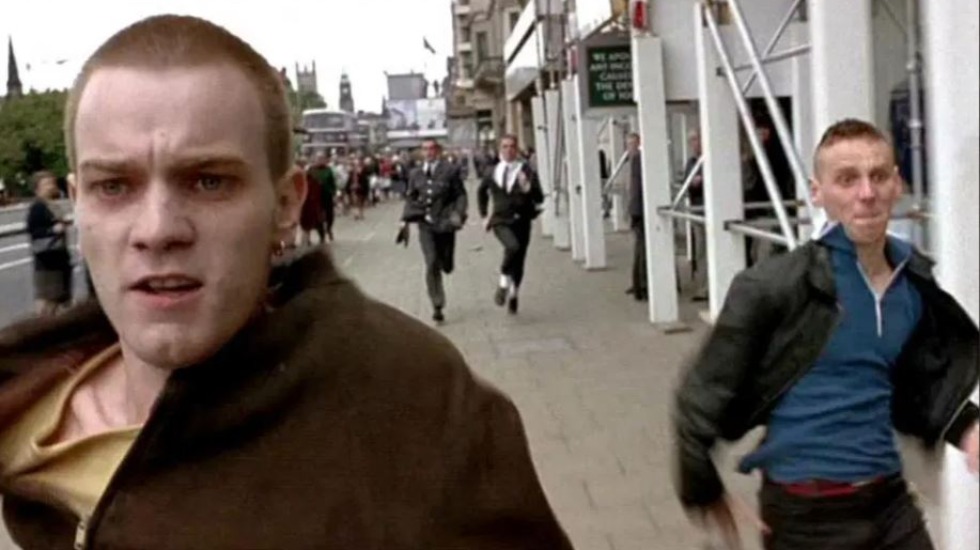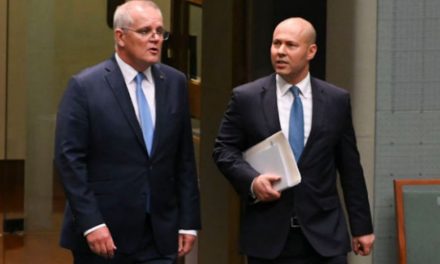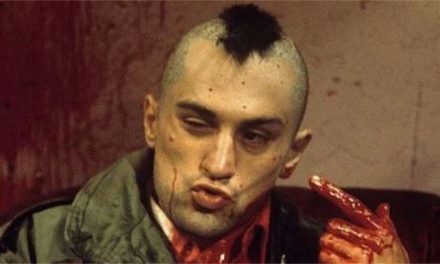The memorable opening to Danny Boyle’s 1996 classic “Trainspotting”, set to the strains of Iggy Pop’s “Lust For Life”.
Music and movies go hand in hand, one form of storytelling folded into the other. So many movies are iconic because of their use of music. They are held up as fantastic works of art because of the symbiotic relationship between the two.
Even if a movie is terrible, judicious use of music within it can be a massive redeeming factor. Examples? How about “A Life Less Ordinary”, “Charlie’s Angels” (the 2000 version) or the “Twilight” movies. Which, by the way, I would contend are not actually bad. But that’s a fight for another day.
I grew up on movie soundtracks. They were my primary form of discovering new and old music. Still are. My first movie soundtrack on CD was “Titanic”. The vast collection of CDs I still own somewhere in the abyss of my stacker are mostly movie soundtracks.
I love music in movies, the depth, the contrast and the themes you can convey with one song placed ideally in a film, is astounding. So it was late one night when listening to yet another movie soundtrack with a rather inspired string cover of Britney Spears’ “Toxic” (if you know, you know), that I decided to make a list of my favourite pre-existing songs in movies.
The result was three full pages long, so here’s the final 10. I had only a loose set of rules: no musicals, no opera sequences, no Tarantino or Scorsese (yet), no songs originally written specifically for that film. So, without further ado, here’s my 10 favourite songs from movies. Warning, spoilers ahead!
“Dancing Lasha Tumbai” by Verka Serduchka from “Spy” (2015) dir. Paul Feig
This might actually be my all-time favourite, no lie. It immediately came into my head when I started putting this list together. I am, as previously stated, a massive Eurovision fan. So, when I went to see “Spy” in cinemas and I heard the opening strains of “Dancing Lasha Tumbai”, I ascended to a higher plane of existence. It is the perfect backing track to such a ridiculous chase. Made all the better by Melissa McCarthy’s dead serious attempts to grab the microphone, only to be interrupted by stylistic autotune. Comedy gold. The entire movie’s great, actually, 10/10 would recommend.
“Bittersweet Symphony” by The Verve from “Cruel Intentions” (1999) dir. Roger Kumble
I heard this song long before I saw the movie due to its sheer ubiquity on late ‘90s music programs. It is the perfect bookend to the movie, the title of the song even fitting the narrative perfectly. Sebastian’s dead, Katheryn’s won, until Annette has Cecile distribute the diary during his funeral. So Katheryn hasn’t really won, taken down by the people she was playing for the entire movie. It might be a bit of late ‘90s teen pastiche, but oh boy, is it a satisfying ending. Everything about it from the teens slowly leaving the funeral, Katheryn losing her cool and then coming outside to see what they were all talking about, Cecile sauntering over and handing her a copy, to Annette then driving off in Sebastian’s car. Chef’s kiss.
“Shame, Shame, Shame” by Shirley & Company from “Pride” (2014) dir. Matthew Warchus
I had two really solid options from “Pride”, this or the use of Billy Bragg’s “There Is Power In A Union” right at the very end. Considering the latter is far more satisfying within the fuller narrative, I went with this. At this point in the movie, LGSM (Lesbians and Gays Support the Miners) are working along well with female members of the Onllwyn community, but the men are mostly avoiding them, lest they be perceived to be less masculine. The choice of song works, not only for a film set in the ‘80s, but for one depicting the LGBTQIA+ community, “Shame, Shame, Shame” being danced to openly and with immense pride from a gay man. It’s a turning point for the community as well, as seen by the reactions on the faces in the crowd and by the rapturous applause at the end.
“Young Hearts Run Free” (Ballroom Version) by Kym Mazelle, feat. Harold Perrineau & Paul Sorvino from “Romeo + Juliet” (1996) dir. Baz Luhrmann
I could have included the whole soundtrack. It’s not a hit after hit soundtrack, but the songs are so perfectly calibrated to tell the story that all of them could be on this list. This sequence effectively draws the battle lines between the Montagues and Capulets, establishes the quasi ‘90s MTV dreamscape the film takes place in, takes a metaphor and makes it drugs (which 100% works), and makes Mercutio the single most interesting character in the entire play. If you don’t like Luhrmann, you won’t like this, but I love it. It’s my favourite adaptation of the play, for all the reasons above. It’s “Romeo and Juliet” for the MTV generation, a highly-stylised and bombastic movie, which is why this out-of-the blue musical number, in a non-musical, works so well.
“Royals” by Lorde from “Hustlers” (2019) dir. Lorene Scafaria
I love this song, but I’m used to seeing it used in various multimedia as an expression of rich kids being rich. The use of it in “Hustlers” has completely reclaimed it, thank you Lorene Scafaria. From Ramona (Jennifer Lopez) walking down the street in a Juicy Couture tracksuit emblazoned with a crown, to the timing of the money flying out of her hands, to Destiny (Constance Wu) walking out her door with her hands raised to “we’ll never be royals…”. The juxtaposition is what makes it work. The lyrics are also fitting considering they’re being arrested for making thousands of dollars fleecing men from strip clubs. They might be rich because of it, but are they really rich according to society? It works on several meta levels.
“Head Over Heels” by Tears for Fears from “Donnie Darko” (2001) dir. Richard Kelly
This is another one where you could have included the entire soundtrack, they’re all songs very good at telling the story. This is the first movie soundtrack I listened to after seeing the movie and realising just how it could influence the storytelling within. The entire thing is solid. I chose “Head Over Heels” not only because I actually love the song, but the way it introduces us to the high school world Donnie inhabits is skilful. It sets the time period, the social divisions within the school, the attitudes of the teachers, and sets up who becomes important to Donnie’s story as the movie progresses. It also illustrates the importance of time within the story as reflected in the lyrics and sped up and slowed down movement of the characters at key points. Show, don’t tell, like I said, masterful.
“Time After Time” by Cyndi Lauper from “Romy and Michele’s High School Reunion” (1997) dir. David Mirkin
This is one of the funniest and most satisfying moments of the entire movie. I can never, ever keep a straight face during it, and half the time I usually look away cringing at the dance routine. Interpretive dance is never not cringey, not even if heartfelt, and a great note to end a narrative journey on. This dance is a throwback to Romy and Michele’s high school days where they’re forced to dance together after a cruel joke is played on Romy. It’s made all the sweeter by the fact that although they might not be in better positions than the people who taunted them in high school, they’re still better people. That and the fact that Sandy Frink has become a billionaire, which makes his latent crush on Michele and rejection of the A-Group all the better. Extra points for the amazing matching yet contrasting outfits after abandoning their story of inventing post-it notes.
“Lust for Life” by Iggy Pop from “Trainspotting” (1996) dir. Danny Boyle
This is one of my favourite uses of music in movies purely because the song doesn’t stand alone. It’s got Renton’s monologue about “choosing life” running over the top of it, with Iggy Pop’s beat running underneath to underline the points Renton’s making about consumerism, life in late 20th century Britain, and societal expectations. It gives rhythm to what could otherwise be a stock standard montage introducing the gang of characters Trainspotting’s about. It actually goes on for the first five minutes of the movie, further underlining just how deeply important heroin addiction is to the story about to be told, and juxtaposes it with the words “lust for life” on a loop. It’s a brilliant stroke of filmmaking from Danny Boyle.
“I Want Candy” (Kevin Shields remix) by Bow Wow Wow from “Marie Antoinette” (2006) dir. Sofia Coppola
I couldn’t not include something from “Marie Antoinette”. I was obsessed (to put it lightly) with this movie when it came out. The aesthetics, the soundtrack, the vibe of the entire film, Kirsten Dunst. Perfection. A lot of people definitely don’t agree with me, but the soundtrack is a major part of what makes the movie so good. The anachronistic music is a perfect way to highlight different parts of Marie Antoinette’s story. Every single song in this movie works perfectly, but I had to limit myself to one. “I Want Candy” is an inspired choice for this montage of all sorts of excess, the dialogue even references candy. It follows a scene with extreme emotional heft and highlights the escapes which Marie had available to her within the confines of her role as Queen of France. It also makes a larger point within the context of the wider film about how divorced from reality the monarchy was at the time from the everyday people of France.
“Wise Up” by Aimee Mann from “Magnolia” (1999) dir. Paul Thomas Anderson
Magnolia is my favourite PTA film, so I’m biased here. This just slightly beats out his use of “Sister Christian”, “Jessie’s Girl” and “99 Luftballons” in “Boogie Nights”. In having all the main characters the film is following sing Aimee Mann’s “Wise Up” despite being on very different paths in life, it highlights universal feelings of grief, inadequacy and loneliness. The song thematically is about how life will never stop throwing obstacles in your way, as is “Magnolia” itself. Every character in the movie singing the same song, at the same time, feeling the same way but being in wildly diverging situations, highlights what “Magnolia” is trying to say, as is prefaced in the opening by the narrator talking about instances of astounding coincidence. The first time I saw it, I cringed. I normally hate this kind of thing, but given the kind of movie “Magnolia” is, it works perfectly.












Great piece. Watching those really hits home what you’re saying about the power of the right song. It’s like Royals was written for that!
It has been a while since I ‘ve seen Trainspotting, but I had forgotten how the actions of the characters in the soccer match perfectly capture their personalities.